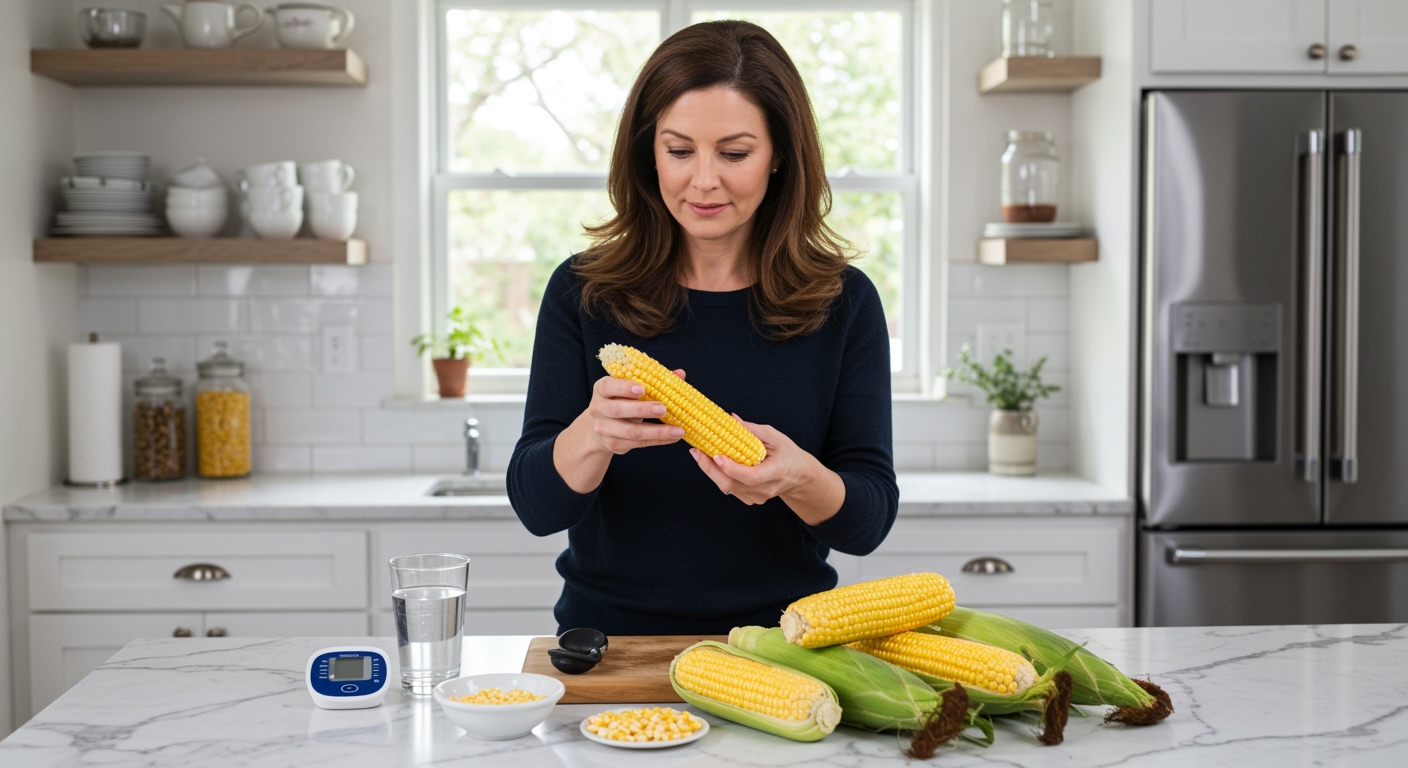✪ Key Takeaway: Corn alone cannot drop blood pressure to dangerously low levels in healthy people.
Introduction
You just finished a bowl of sweet corn and suddenly wonder if this yellow grain could mess with your blood pressure.
Maybe you heard somewhere that corn has blood pressure lowering effects and now you are worried about hypotension.
Hi, I am Abdur, your nutrition coach and today I am going to explain whether eating corn can actually lower your blood pressure too much.
Does Corn Actually Lower Blood Pressure?
Corn contains several compounds that may have mild effects on blood pressure regulation.
The potassium content in corn helps balance sodium levels in your body, which can support healthy blood pressure.
One cup of corn provides about 325 milligrams of potassium, which is roughly 7 percent of your daily needs.
Corn also contains magnesium, another mineral that plays a role in blood vessel relaxation and pressure regulation.
However, the amounts of these nutrients in corn are relatively modest compared to other foods like bananas or leafy greens.
The fiber content in corn may also contribute to cardiovascular health by helping manage cholesterol levels and supporting overall heart function.
✪ Fact: One ear of corn contains only about 2 percent of your daily potassium needs.
Can Corn Cause Dangerously Low Blood Pressure?
The simple answer is no – corn cannot cause dangerously low blood pressure in healthy individuals.
The nutrient levels in corn are not concentrated enough to create dramatic changes in your cardiovascular system.
Even if you ate large amounts of corn daily, the potassium and magnesium content would not be sufficient to cause hypotension.
Your body has sophisticated mechanisms to regulate blood pressure that prevent single foods from causing extreme changes.
The kidneys, heart, and blood vessels work together to maintain pressure within safe ranges regardless of minor dietary fluctuations.
However, people taking blood pressure medications should be aware that any dietary changes might interact with their treatment plan.
✪ Note: Always consult your doctor before making major dietary changes while on blood pressure medication.
What About People With Existing Low Blood Pressure?
If you already have low blood pressure (hypotension), you might wonder if corn could make it worse.
The reality is that corn is unlikely to significantly impact your condition either way.
People with chronic hypotension typically need to focus on sodium intake, fluid consumption, and meal timing rather than avoiding specific foods.
The carbohydrate content in corn might actually be helpful for some people with low blood pressure.
Carbohydrates can help maintain blood sugar levels, which supports overall cardiovascular stability.
If you have postprandial hypotension (blood pressure drops after eating), the fiber in corn might help slow digestion and prevent rapid blood sugar changes.
✪ Pro Tip: Eat corn with protein and healthy fats to slow digestion and stabilize blood sugar.
How Much Corn Is Safe To Eat?
For most people, eating corn in normal portions poses no risk to blood pressure levels.
A typical serving of corn is about half a cup of kernels or one medium ear of corn.
You can safely include corn in your diet several times per week without worrying about blood pressure effects.
The bigger concern with corn consumption is usually related to blood sugar management rather than blood pressure.
Corn is a starchy vegetable that can raise blood glucose levels, which is more relevant for people with diabetes.
Focus on choosing whole corn products rather than processed corn foods that contain added sodium, sugar, or unhealthy fats.
✪ Fact: Fresh corn has zero sodium, making it naturally heart-friendly when prepared without salt.
The Bottom Line
Corn cannot lower your blood pressure to dangerous levels and is safe for most people to eat regularly.
Food is medicine, but corn is not a blood pressure medication – it simply provides modest amounts of heart-healthy nutrients.
I would love to hear about your experiences with corn and blood pressure in the comments below, so please share your thoughts or questions.
References
At NutritionCrown, we use quality and credible sources to ensure our content is accurate and trustworthy. Below are the sources referenced in creating this article:
- PubMed: Corn and Cardiovascular Health Research
- ICICI Lombard: Side Effects of Corn
- Nebraska Corn: Six Surprising Health Benefits of Corn
- MedicineNet: Is Corn a Vegetable





